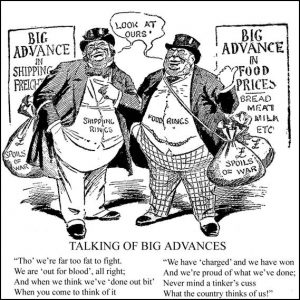By Prof Jonathan Hill, Professor of Law (University of Bristol Law School).
 It is a fundamental principle of arbitration law that arbitrators – whether appointed by one of the arbitrants, by the arbitrants jointly or by a third party (such as an arbitral institution or a national court) – must be impartial. This principle is enshrined in institutional arbitration rules and national legislation. It is, therefore, not surprising that, when doubts as to an arbitrator’s impartiality arise, one of the arbitrants will seek to have the arbitrator removed. The importance of the parties’ right to challenge an arbitrator on the basis of justifiable doubts as to the arbitrator’s impartiality is illustrated by the recent decision of the High Court in Sierra Fishing Co v Farran [2015] 1 All ER (Comm) 560. The decision is notable in two respects.
It is a fundamental principle of arbitration law that arbitrators – whether appointed by one of the arbitrants, by the arbitrants jointly or by a third party (such as an arbitral institution or a national court) – must be impartial. This principle is enshrined in institutional arbitration rules and national legislation. It is, therefore, not surprising that, when doubts as to an arbitrator’s impartiality arise, one of the arbitrants will seek to have the arbitrator removed. The importance of the parties’ right to challenge an arbitrator on the basis of justifiable doubts as to the arbitrator’s impartiality is illustrated by the recent decision of the High Court in Sierra Fishing Co v Farran [2015] 1 All ER (Comm) 560. The decision is notable in two respects.
The significance of the IBA Guidelines on Conflicts of Interest in International Arbitration
Because, in international cases, arbitrants and arbitrators often come from different countries and different legal traditions, they may have different conceptions of what types of circumstance give rise to a conflict of interests and different assumptions about how any such conflict might be resolved. The IBA guidelines, which were originally formulated in 2004 and have been subsequently revised (most recently in 2014), aim to assist the arbitration community by providing a typology of different kinds of conflict and a system for grading their seriousness. The guidelines list a wide variety of professional, financial and personal connections and place them in three lists: red (split into waivable and non-waivable); orange (waivable); and green (irrelevant). Since their inception, the guidelines have frequently been used by arbitrators (in assessing what circumstances need to be disclosed prior to appointment, or thereafter) and arbitral institutions (when determining challenges under institutional rules).









